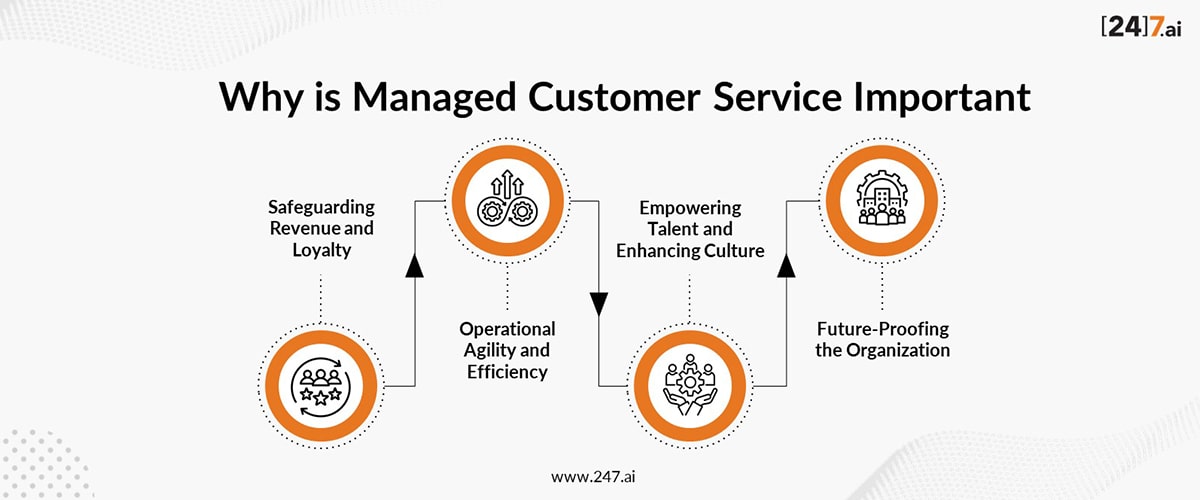Table of contents
- Introduction
- Redefining Customer Service: What Is Managed Customer Service?
- The Evolution: From Call Centers to Intelligent Experience Hubs
- Why Is Managed Customer Service Important? The Executive Perspective
- The Human Touch in a Digital World
- Managed Customer Service in 2025: The C-Suite Mandate
- Conclusion: Turning Service into Strategic Advantage
- FAQs

What Is Managed Customer Service?
To simplify and define, It is a comprehensive solution in which organizations outsource the end-to-end management of customer service operations to a partner or an internal team that is equipped with advanced technology, processes, and talent.
This model includes the below elements:
- Proactive engagement of the customer through digital and voice channels.
- AI-enabled automation for primary inquiries, which allows the agents to handle more complicated inquiries.
- Continuous performance monitoring and quality assurance
- Data-driven insights to anticipate customer needs and offer personalized customer engagement.
It enables organizations to quickly meet evolving customer needs, boost efficiency, and ensure consistent global branding.
The Evolution: From Call Centers to Intelligent Experience Hubs

Key milestones in this evolution include -
- Adoption of AI and machine learning for instantaneous, contextually aware responses.
- Unified customer data platforms to eliminate fragmented experiences
- Omnichannel orchestration, providing customers with support wherever they might be social, chats, emails or phones.
- Real-time analytics for continuous improvement and a better and faster decision-making
Why Is Managed Customer Service Important? The Executive Perspective

1. Safeguarding Revenue and Loyalty
2. Unlocking Operational Agility and Efficiency
3. Empowering Talent and Enhancing Culture
Employee engagement is a powerful driver of customer service excellence. 76% of employees are more engaged when leaders show empathy, with direct impact on customer satisfaction and avoiding expensive turnover. Continual training, empathetic leadership, and well-being initiatives are invested in by Customer Service providers, ensuring motivated and able teams deliver outstanding service.
4. Future-Proofing the Organization
The Human Touch in a Digital World




